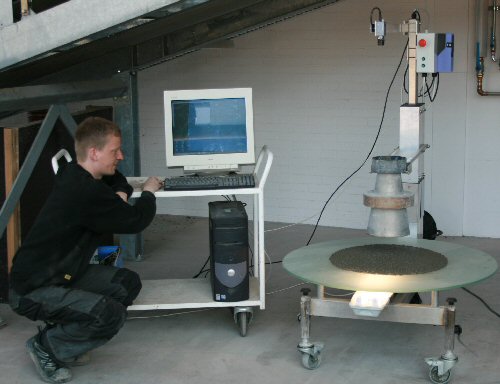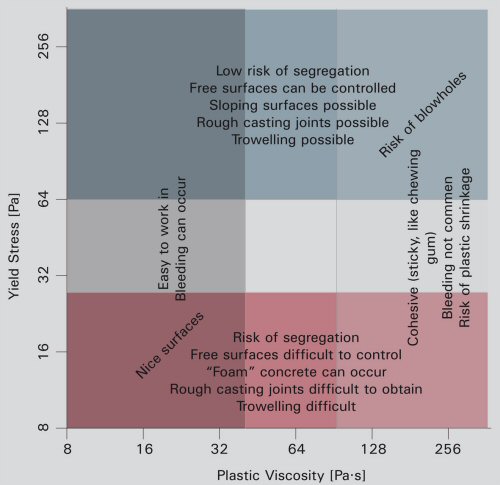4C-Rheometer – Measuring Rheology of Self Compacting Concrete - The Equipment
The 4C-Rheometer is a system for automatic determination of the yield stress and plastic viscosity of Self-Compacting Concrete (SCC). The system is a PC automated slump flow test where the flow curve (spread vs. time) is determined using digital image analysis. The flow curve is subsequently compared to a database of simulated flow curves to give the yield stress and plastic viscosity.

The 4C-Rheometer can be applied:
- At the concrete plant or job site for quality assurance testing of SCC
- During development and optimization of SCC mix designs
- In research and development for scientific studies e.g. to study the effect of concrete constituent materials on the yield stress and plastic viscosity of SCC.
The advantages of the 4C-Rheometer system are:
- Provides yield stress and plastic viscosity in fundamental units
- Provides slump flow and t500
- Less than 2 minutes to perform analysis
- User friendly and easy to operate and maintain
- Can be used in a laboratory and at the job site
- Test results are completely independent on the operator.
Designing SCC mixtures with specific rheological parameters is often a challenge. The 4C-Rheometer can be used in the process of mix design development as the primary tool for measuring the rheology of the test mixtures. With information about the yield stress and plastic viscosity it becomes easier to differentiate between different SCC mixtures, thus making it possible to develop mixtures with rheological parameters targeted at particular types of castings e.g. slabs, walls, bridge decks, etc.
As an example, the 4C-Rheometer was used for acceptance testing at a full-scale highway bridge deck casting in October 2006, where it proved a valuable tool in testing the concrete rheology onsite in order to avoid dynamic segregation, to control the moving front of the concrete, and to assure that the concrete could be finished with a slope of 3%.
The 4C-Rheometer can be used for fundamental scientific research on the rheology of SCC. The equipment is a productive and cost-effective solution to the scientist that will investigate e.g. the effect of constituent materials on the rheological parameters of SCC, and has been shown to correlate well with the BML viscometer.